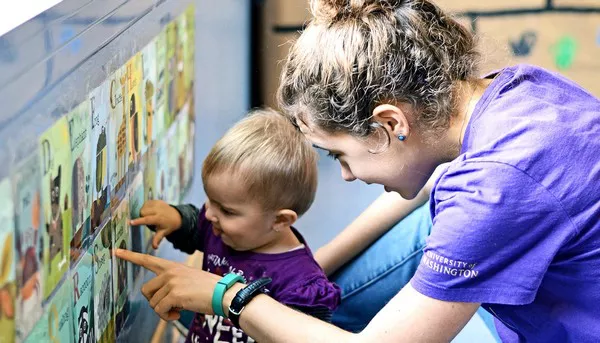Montessori toys have gained immense popularity in recent years for their focus on fostering children’s independence, creativity, and critical thinking skills. However, one aspect that often raises eyebrows among parents and caregivers is the seemingly high price of these educational toys. In this article, we will unravel the reasons behind why Montessori toys tend to come with a higher price tag. By understanding the factors contributing to their cost, you’ll gain insight into the value they bring to a child’s development.
Aspect 1: Quality Materials
1.1 Sustainably Sourced Wood:
Montessori toys are often crafted from high-quality wood, such as beech or maple, which is sustainably sourced. This wood is not only durable but also eco-friendly.
1.2 Handcrafted and Artisanal:
Many Montessori toys are handmade by skilled artisans. This craftsmanship ensures attention to detail and a level of quality that mass-produced toys often lack.
Aspect 2: Educational Design
2.1 Educational Focus:
Montessori toys are designed with educational principles in mind, aiming to enhance various developmental skills in children.
The design process often involves educators and child development experts to create toys that align with Montessori teaching methods.
2.2 Versatility and Longevity:
These toys are typically designed to grow with a child, offering different levels of complexity as the child develops.
This versatility ensures that Montessori toys remain engaging and educational over an extended period.
Aspect 3: Safety and Compliance
3.1 Stringent Safety Standards:
Montessori toys are subjected to rigorous safety standards to ensure they are free from harmful chemicals and choking hazards.
Compliance with these standards requires additional testing and quality control measures.
Aspect 4: Limited Production
4.1 Small-Batch Production:
Many Montessori toy makers produce these toys in small batches, which can increase production costs compared to large-scale manufacturing.
Smaller production runs may also make it challenging to achieve economies of scale.
Aspect 5: Ethical and Fair Labor Practices
5.1 Fair Wages for Artisans:
Supporting fair wages for the skilled artisans who craft Montessori toys is an integral part of the production process.
Fair labor practices contribute to higher production costs but promote ethical manufacturing.
Aspect 6: Educational Value
6.1 Investment in Child’s Development:
Montessori toys are seen as an investment in a child’s early education and development.
The price reflects the belief that these toys can have a significant impact on a child’s learning journey.
Aspect 7: Brand Reputation
7.1 Trusted Brands:
Established Montessori toy brands often command higher prices due to their reputation for quality and educational value.
Consumers are willing to pay more for products they trust.
In conclusion, the price of Montessori toys is influenced by a combination of factors, including the use of quality materials, educational design, safety compliance, limited production, ethical labor practices, and the perceived value they bring to a child’s development. While they may be more expensive than conventional toys, many parents and caregivers view them as an investment in their child’s early education and overall growth.
This article explores the reasons behind the high cost of Montessori toys, shedding light on the various factors contributing to their price tag. Understanding these factors can help parents and caregivers make informed choices when selecting toys that align with the Montessori philosophy of education.
FAQs About Why Montessori Toys Are So Expensive
Q1: Why are Montessori toys more expensive than regular toys?
A1: Montessori toys are designed with specific educational principles in mind, using high-quality materials and often crafted by skilled artisans. These factors contribute to their higher price compared to mass-produced toys.
Q2: What makes Montessori toys different from conventional toys?
A2: Montessori toys are designed to encourage independent and creative play while promoting critical thinking and problem-solving skills. They are typically made from eco-friendly, sustainable materials and prioritize a child’s development over flashy features.
Q3: Are Montessori toys worth the extra cost?
A3: Many parents and educators believe that Montessori toys are worth the investment due to their focus on holistic child development. These toys can support a child’s cognitive, emotional, and physical growth.
Q4: Do Montessori toys undergo safety testing?
A4: Yes, Montessori toys are often subjected to rigorous safety standards to ensure they are free from harmful chemicals and choking hazards. Compliance with these standards requires additional testing and quality control measures.
Q5: Why are Montessori toys often handcrafted?
A5: Handcrafted Montessori toys are valued for their attention to detail and quality. Skilled artisans create them to ensure they align with Montessori educational principles, which can result in higher production costs.
Q6: Do all Montessori toys come in small batches?
A6: Not necessarily. While some Montessori toy makers produce toys in small batches to maintain quality, others may opt for larger-scale manufacturing. The choice may vary among different brands and products.
Q7: Can I find more affordable alternatives to Montessori toys?
A7: Yes, there are more budget-friendly alternatives to Montessori toys available. Some brands offer lower-priced options, and you can also find DIY resources to make Montessori-inspired toys at home.
Q8: Are all Montessori toy brands equally expensive?
A8: No, not all Montessori toy brands have the same pricing. Established brands with a reputation for quality and educational value may command higher prices, while newer or lesser-known brands may offer more affordable options.
Q9: What should I consider when purchasing Montessori toys on a budget?
A9: When shopping for Montessori toys within a budget, consider the educational value of the toy, prioritize quality over quantity, and research different brands to find options that align with your financial constraints.
Q10: How can I ensure that Montessori toys are a worthwhile investment for my child’s development?
A10: To make Montessori toys a worthwhile investment, observe how they engage your child’s curiosity, promote independent learning, and support their overall development. Remember that the long-term educational benefits may outweigh the initial cost.


